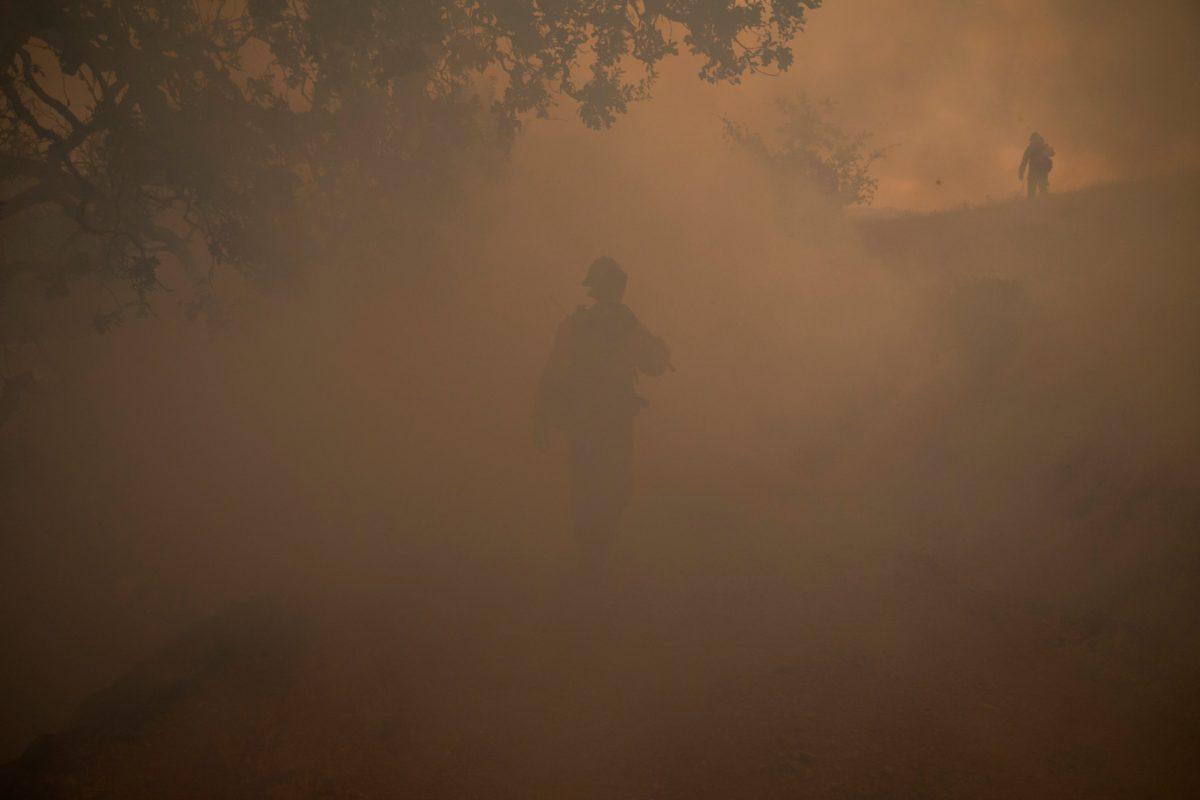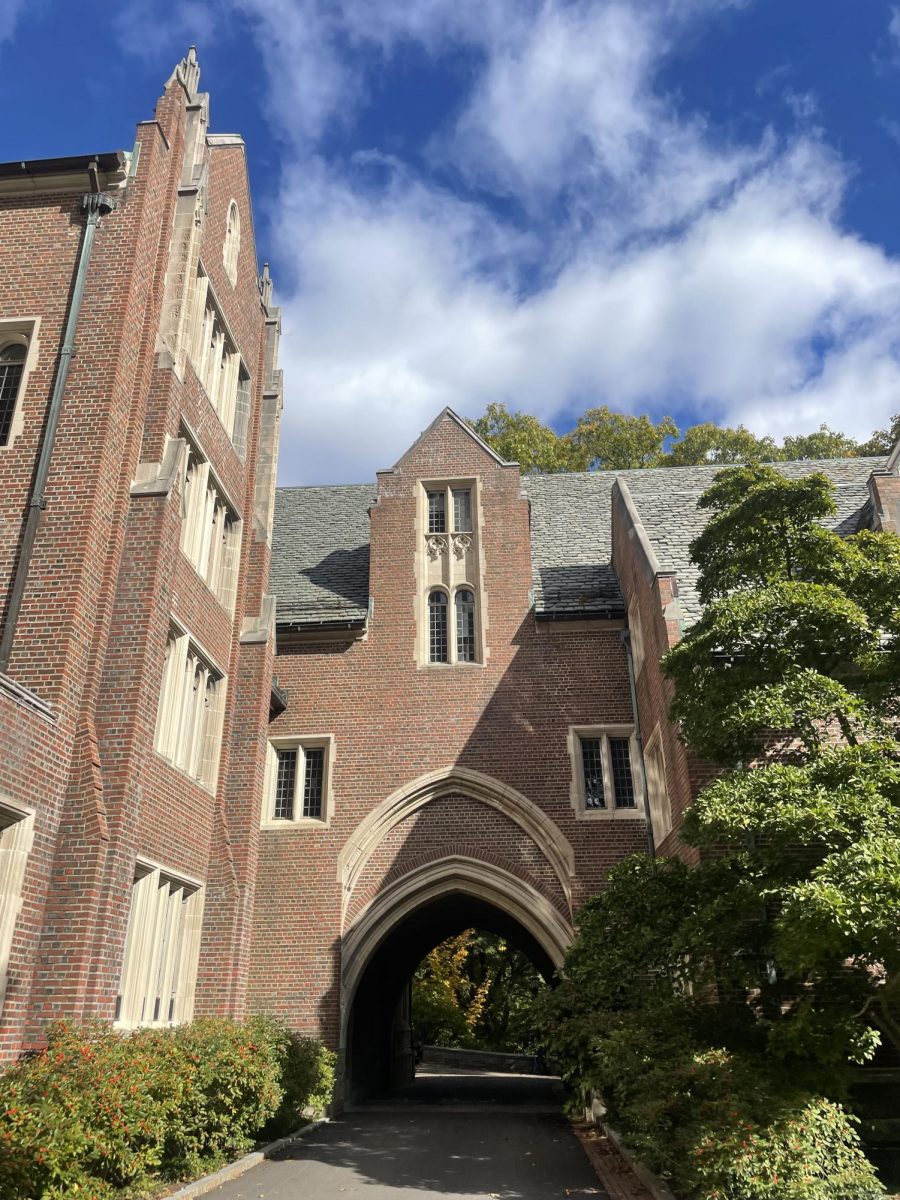Alberta Born-Weiss has only been back to her home state of California twice since graduating high school, but has spent the past several weeks anxiously communicating with her mother, who currently lives in San Rafael. “She’s a single mother with an emotional disability, so I was worried about her not having a support network if she’s supposed to evacuate.” As Born-Weiss’ mother doesn’t subscribe to any news sources, and doesn’t have a presence on social networks like Facebook, she had to rely on her daughter to find out — from across the country — if conditions were getting bad enough to place her in the mandatory evacuation zone.
Over the past week, a fire known as the Kincaid Fire has torn through 78,000 acres of California’s wine country, forcing hundreds of thousands of people to evacuate the area. The fire was sparked by a power line owned by PG&E, a power company that serves much of the state. One way the company has attempted to protect dry landscapes from further fires has been through the use of pre-scheduled rolling blackouts. However, these blackouts can make life even harder for people like Born-Weiss’ mother. “This time, there was a power outage for three days,” Born-Weiss said. “She’s currently unemployed, and she’d bought two weeks worth of groceries, and they went bad. That’s a really hard financial position for her, so she had to buy new food every single day while all this food she bought soured.” For some Californians, the outcome of the blackouts has been even worse, as at least one man who relied on an oxygen machine to breathe died during a blackout on October 12.
According to a recent report by Business Insider, PG&E has caused 1,500 fires in the past six years, including a fire from last year which was the deadliest in the state’s history. Last week, 16 of those fires were active across the state. Many critics, including the state’s governor, have accused the company of prioritizing profit over lives.
Natalie Grant ’23 described watching her family’s situation change due to the fires while navigating her first semester at college. She said that, while her former high school in Los Angeles has never had a snow day, they’ve had several ‘fire days’ over the past few years. “This year’s fires induced the most dramatic effect — my school, just two miles west of the Getty Museum, cancelled four out of five days last week,” she said. “My dad reported that ash was falling from the sky like snow outside of his office in Santa Monica. The images of the swelling flames are apocalyptic.” While Grant’s family hasn’t had to evacuate themselves, they took in a family friend who was forced to flee the fires. “Even though I wasn’t directly affected, it was stressful and heartbreaking to watch my city burn from afar and feel helpless to the devastation that is becoming routine,” she said.
California is among the top three states sending students to Wellesley, with 14.8 percent of the student body hailing from there, according to collegefactual.com. The degree to which students and their families’ lives are affected by the fire depends not only on geographic location, but also on factors such as income level and immigration status. Low-income Californians are less likely to be able to leave everything behind and evacuate, while undocumented Californians may be less likely to utilize the evacuation resources the state provides. “Immigration status plays a big role in how likely people are to trust the resources the government is providing,” Born-Weiss said. “There’s so many layers of nuance in how the fires and the outages might affect people.”
Meg Brandt ’22 told the News that their younger brother’s graduation date may be pushed back by the fires — due to fires and blackouts, they have had to cancel a substantial amount of class this semester. Brandt, of Santa Cruz, California, said “My family hasn’t been affected as much as a lot of people have, and I feel really grateful that the fire isn’t close enough for it to endanger them.” However, Brandt also noted that students and faculty here need to be mindful of the stress that the fire is causing to students — particularly given that natural disasters like this are likely to increase over the next few years. “I think it is important to be considerate of the stress it could cause students. For me at least it is kind of disorienting to be so far away from my family when they are living this really crazy political and environmental phenomenon, and to be so far away from so many organizing efforts that have happened in my hometown. It makes me feel really removed from it all and also concerned for the state of California.”
Born-Weiss agreed. “I think that whenever there’s any disaster happening in the world knowing that people here don’t just see it as a news story is important,” she said. “We have people here living in conflict zones, and in places affected by US sanctions, and so on, so I think just checking in with people and asking if they’re ok is fundamental.” Though the news stories have circulated stating that millions of Californians are spending days without power, students at Wellesley are often forced to deal with the complicated nature of supporting their families from afar alone. “It would be nice if the deans were to reach out and just ask if your family is OK,” Born-Weiss said. “It’s important to consider the impact on students and remember that we’re not just academic brains in isolation from our emotional well-being.”






